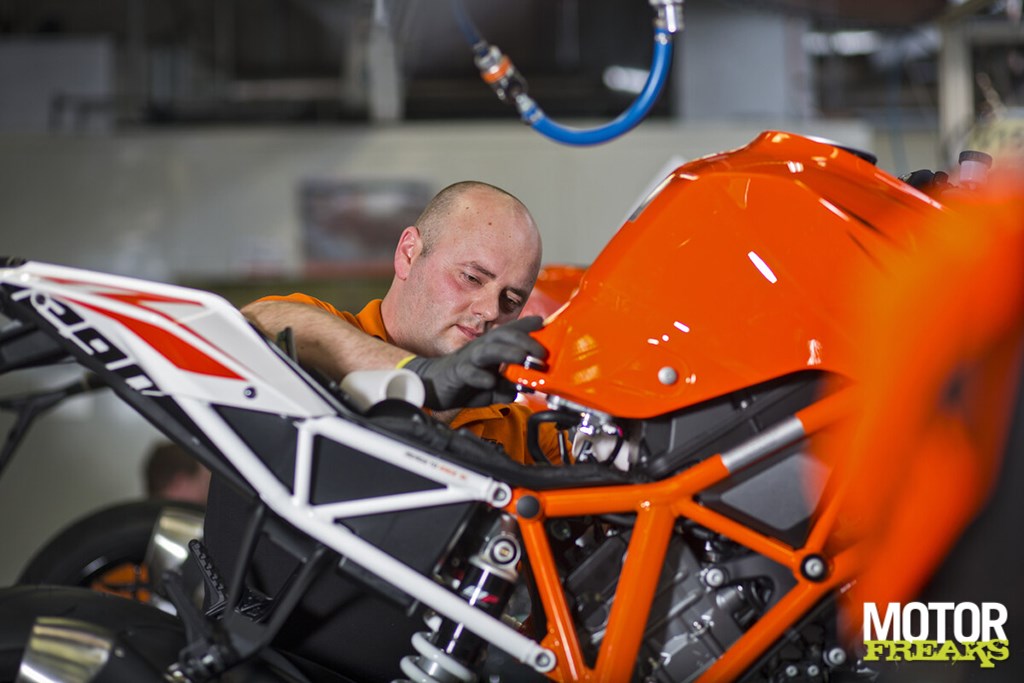Rajiv Bajaj, the future strongman at KTM, has shocked the European motorcycle world with his statement that “motorcycle production in Europe is dead”. His vision raises questions about the future of manufacturing and innovation on the continent.

Rajiv Bajaj, CEO of Bajaj Auto and soon to be majority shareholder of KTM, recently caused a stir with his statement on Indian television. His company has been a partner of the Austrian manufacturer for many years and has been producing KTM’s 125 to 390 models in India since 2011. Now that Bajaj is further tightening its grip on the company, fears are growing in Mattighofen that production will eventually be moved to Asia.
According to KTM itself, this is not the case: “No production moves are planned.” But that does not mean that foreign production cannot increase further. For example, the 790 Duke, which was reintroduced after being replaced by the 890 Duke, is built in China. This makes the model cheaper for customers, without directly affecting employment in Austria.
Former KTM CEO Stefan Pierer indicated as early as 2022 that price-sensitive two-cylinder models would from now on be produced by partner CFMoto in China, while the premium lines will remain in Mattighofen. According to recent information, this strategy remains unchanged: Austria retains the top models, Asia takes over the cheaper middle class.
KTM is no exception. Almost all European brands now have production in Asia. BMW collaborates with TVS in India, where, among other things, the G310 and future F450 series roll off the production line. Piaggio builds Aprilia’s 457 series in Baramati, India, while Triumph has moved most of its mass production to Thailand. Ducati produces in Rayong for the Asian market and keeps the exclusive work in Bologna.
Yet the picture is not black and white. The European factories remain the heart of innovation and premium quality. Ducati, BMW and KTM know that their image is inextricably linked to their origins. But global competition is growing rapidly. Asian manufacturers are increasingly purchasing European know-how – from engine development at Bosch to complete engineering firms in Italy.
Bajaj himself emphasizes that he considers KTM’s European expertise to be unique: “Product quality is more important than numbers.” This is good news for Mattighofen: the factory remains the center of technical development within the Bajaj empire.
The challenge for the European motorcycle industry therefore does not lie in mass production, but in innovation, craftsmanship and technology. Anyone who manages to maintain the lead has a future, even in a globalized market.
– Thanks for information from Motorfreaks.